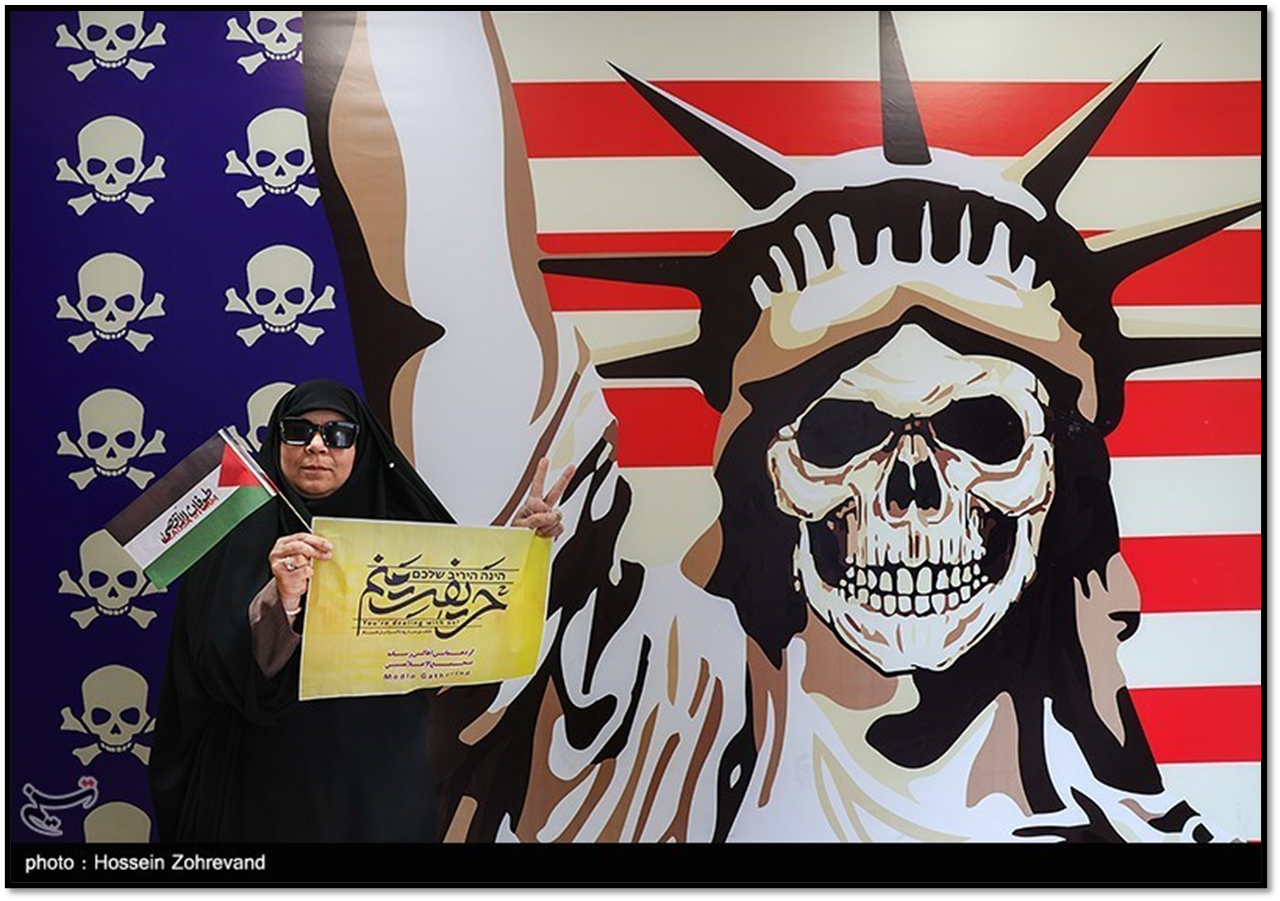Blinken in Middle East Amid Gaza War
On Nov. 2, 2023, Secretary of State Antony Blinken headed to the Middle East for consultations with regional leaders on the war between Israel and Hamas. He worked to prevent the conflict from spreading, secure the release of hostages, and increase the volume of aid entering Gaza. The following are excerpted remarks from each of the stops on his tour.
Iran Commemorates U.S. Embassy Seizure

On Nov. 4, 2023, Iran held celebrations to mark the 44th anniversary of the seizure of the U.S. Embassy, when 52 American diplomats were held for 444 days. The takeover, which gripped world attention, ended a presidency and introduced the yellow ribbon as a symbol of American unity, was one of the most traumatic U.S. foreign policy crises of the 20th century.
Timeline: Iran and Hezbollah
Since 1982, Hezbollah has embodied Iran’s grand strategy to create a network of proxy forces across the Middle East, both to expand Tehran’s sphere of influence and promote its security interests and Islamic ideology. The Shiite movement took root after Israel’s 1982 invasion and amid the chaos of the Lebanese civil war, which had raged since 1975.
Profile: Lebanon's Hezbollah
Lebanon’s main Islamist party has undergone a profound transformation over the past four decades. Once associated with suicide bombings and hostage-taking, Hezbollah has steadily evolved from an underground movement in 1982 to the dominant political player in Lebanon in 2023. Yet even though Hezbollah is strong militarily and politically, it also faces greater challenges than ever before. They range from the party’s massive expansion since 2006 to the domestic discontent over its refusal to abandon its weapons and the growing disenchantment within its Shiite base.
Doctrine of Hamas
Since its creation in December 1987, Hamas has invoked militant interpretations of Islam to spearhead a Sunni extremist movement committed to destroying Israel. Hamas distanced itself from the longstanding Palestine Liberation Organization (PLO)—an umbrella organization for disparate Palestinian factions that ranged from Marxist to secular nationalists—by propagating resistance in the religious context of jihad, or a holy struggle and martyrdom.
U.S. Sanctions Networks Supporting Iran’s Missile & Drone Programs
On October 18, the United States sanctioned 11 people, eight entities and one vessel linked to Iran’s ballistic missile and unmanned aerial vehicle (UAV) programs. They were based in Iran, Hong Kong, China and Venezuela and had materially supported the Revolutionary Guards, the defense ministry, or their subordinates. The move coincided with the expiration of U.N. restrictions on Iran’s missile program as part of U.N. Security Council Resolution 2231, which enshrined the 2015 nuclear deal.
Parliament Passes New “Hijab and Chastity” Bill
On Sept. 20, 2023, Iran’s parliament passed a controversial bill that would increase penalties for women not adhering to the rigid Islamic dress code. The law equated refusing to wear hijab—either in public or virtually—as “nudity.” It mandated stiff fines and prison sentences up to a decade for violators. It also penalizes Iranians, including businesses or restaurants, who promote or allow immoral behavior, such as improper dress.
U.S. on Protest Anniversary
On September 15, President Joe Biden and Secretary of State Antony Blinken pledged support to Iranians defending human rights on the one-year anniversary of the death of Mahsa Amini, who died in police detention for alleged “improper” hijab. The following are statements by Biden and Blinken.
Experts on State of Iran’s Protests
On September 12, four experts assessed the impact of the protest movement in Iran one year later. They also explored the state of Iranian politics, including the simmering internal flashpoints as well as the government’s response. The experts also analyzed Iran’s problems with the outside world, including the United States, on the eve of President Ebrahim Raisi’s trip to the United States for the U.N. General Assembly. The speakers were:
